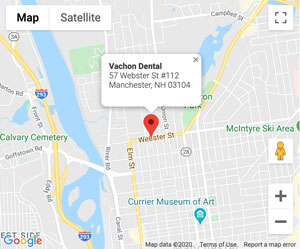Differences between conventional dentures and immediate dentures?
Complete dentures are called “conventional” or “immediate” depending on the time they are made and when they are inserted into the mouth.
Immediate dentures are introduced immediately after the removal of the teeth. To accommodate this, the dentist takes measurements and makes the model of the patient’s jaws during a preliminary visit.
A benefit of immediate dentures is that the patient does not have to be without teeth during the healing period. However, bones and gums can shrink over time, especially during the period of healing in the first six months after the removal of teeth. When gums shrink, immediate dentures may require rebasing or relining to fit properly. A conventional denture can then be made once the tissues have healed. Healing may take at least 6-8 weeks.
What is an overdenture?
An overdenture is a removable denture, which fits over a few of the remaining natural teeth or implants. The natural teeth need to be prepared to provide stability and support for the denture. Your dentist can verify if an overdenture would be suitable for you.
What will dentures feel like?
New dentures can feel awkward for a few weeks until the patient becomes accustomed to them. Dentures may feel loose while the muscles of your cheek and tongue are ‘trained’ to keep them in place.
It is not unusual to experience minor irritation or soreness caused from new dentures. Patients may find that their saliva may temporarily increase as well. As the mouth becomes comfortable to the dentures, these problems should diminish. Patients should schedule follow-up appointments with their dentist after a denture is inserted. If any problem persists, particularly irritation or soreness consult your dentist.

1-603-627-2092
Fax -
1-603-944-9330


